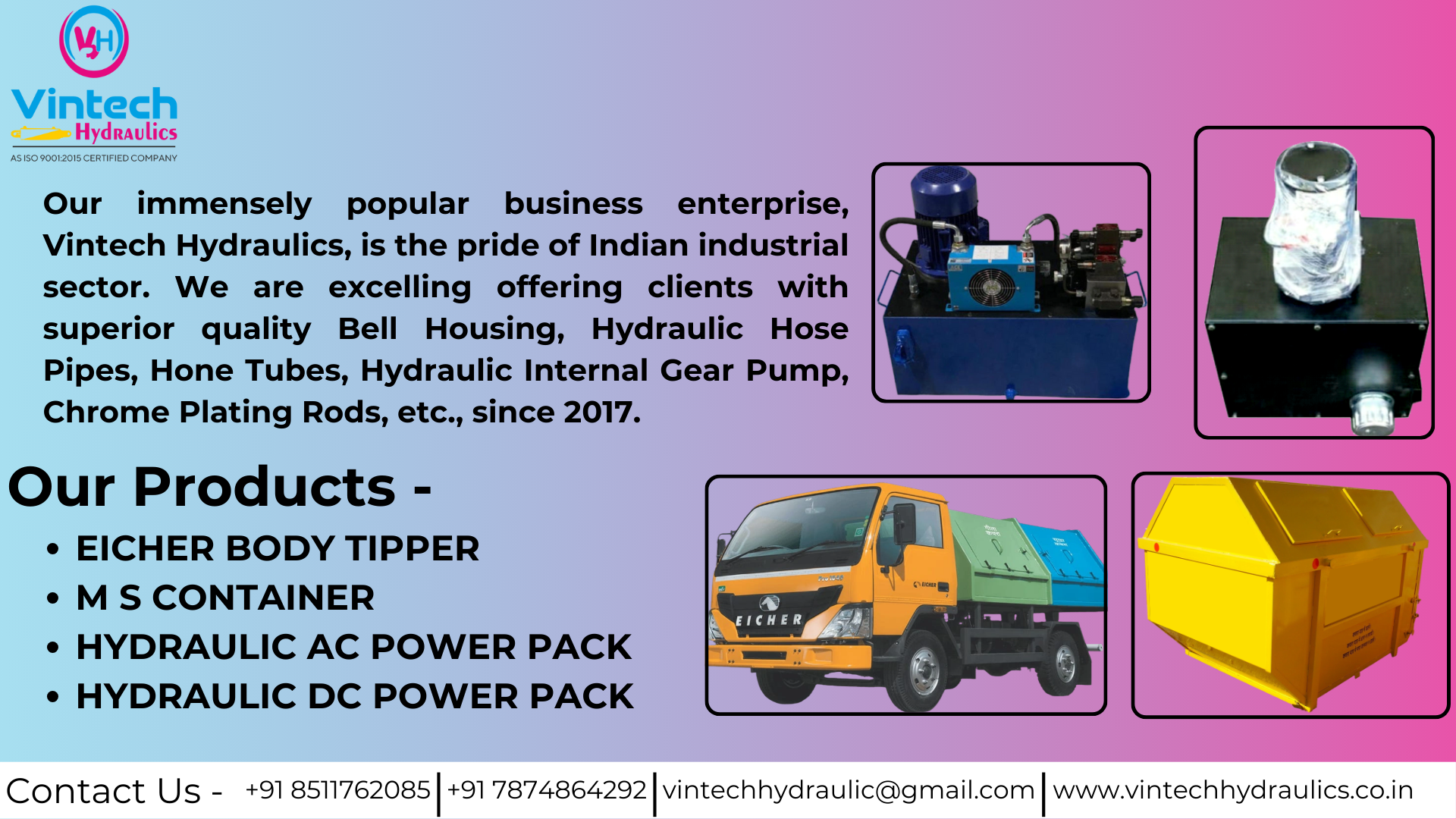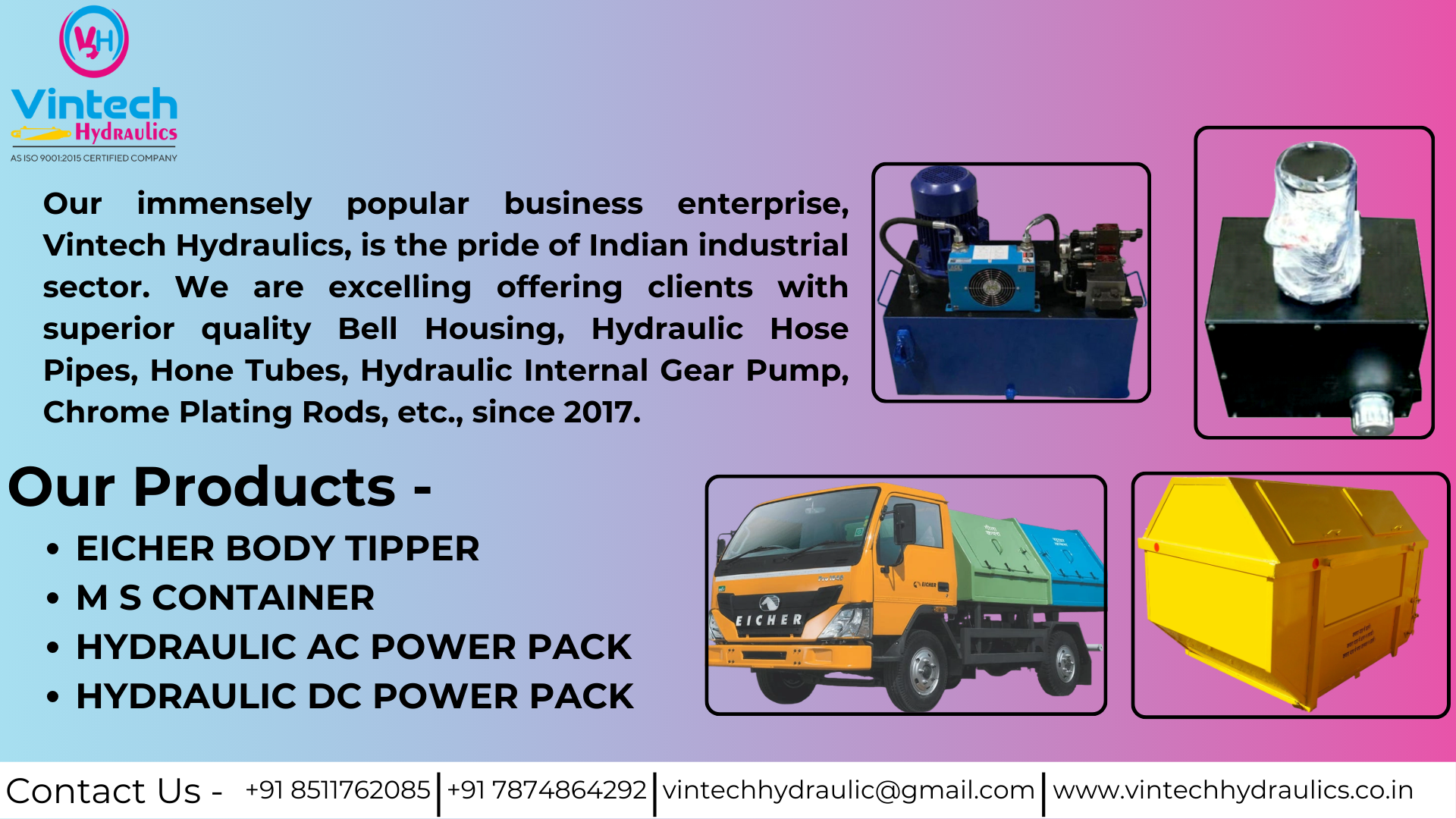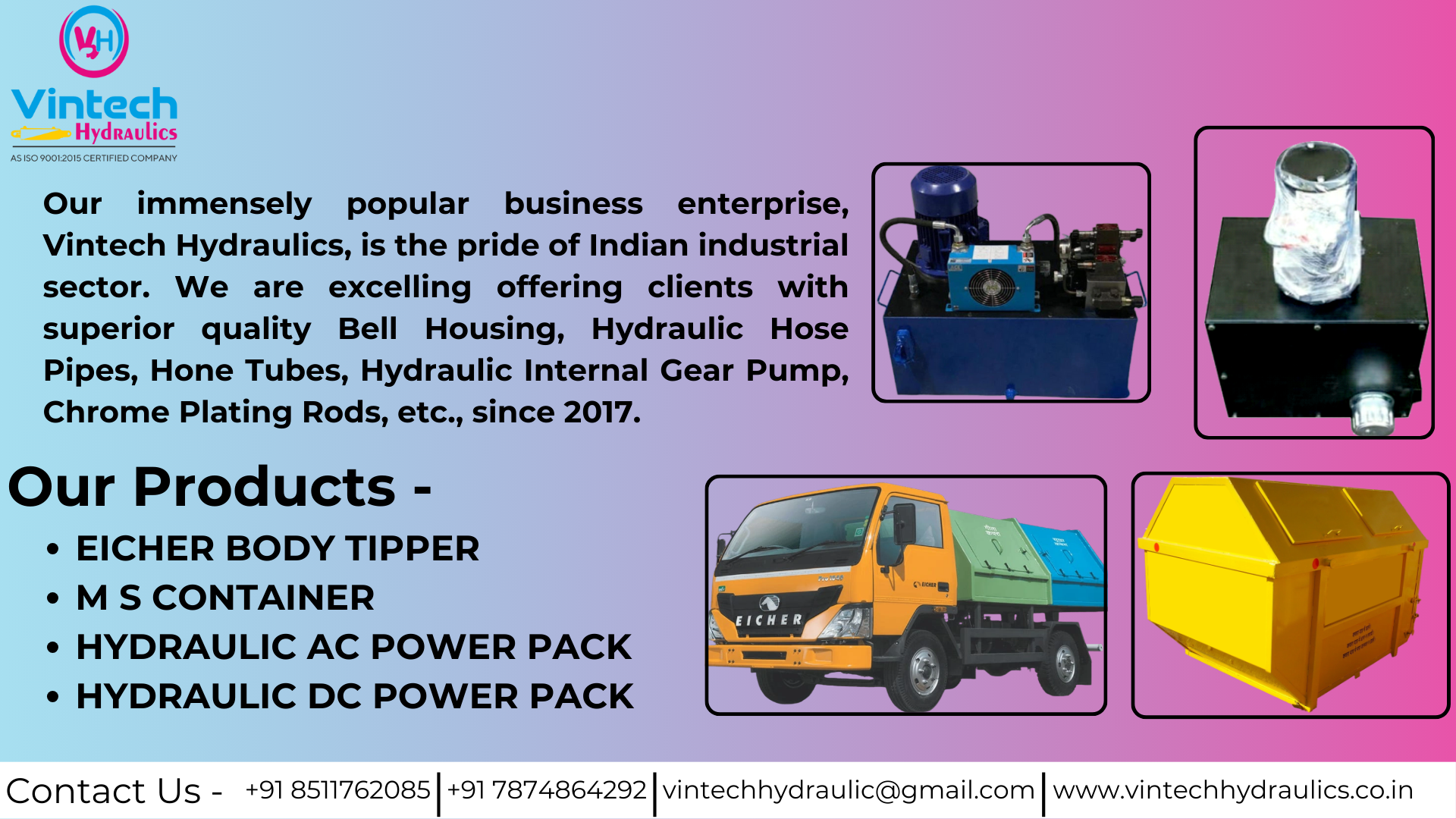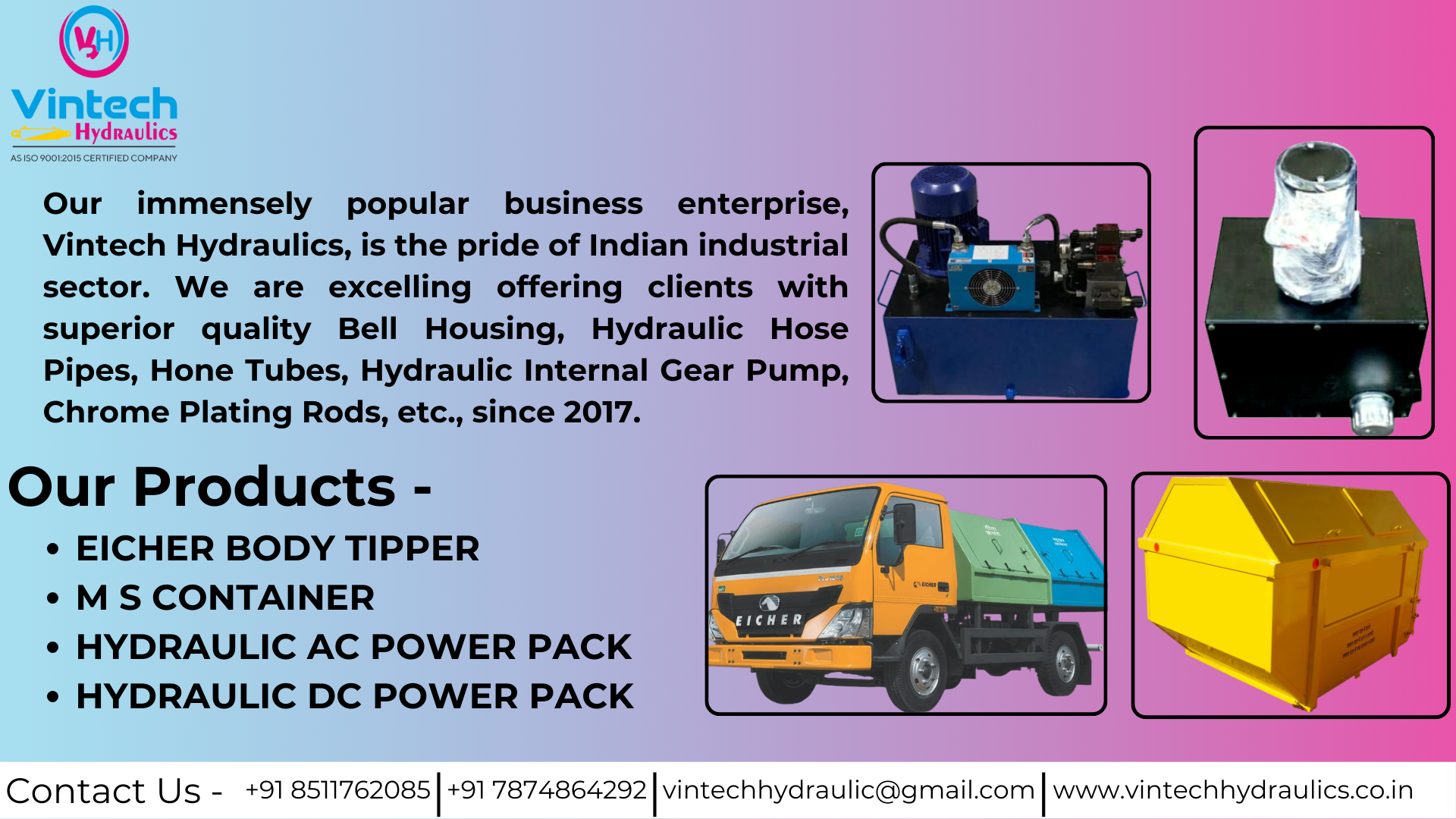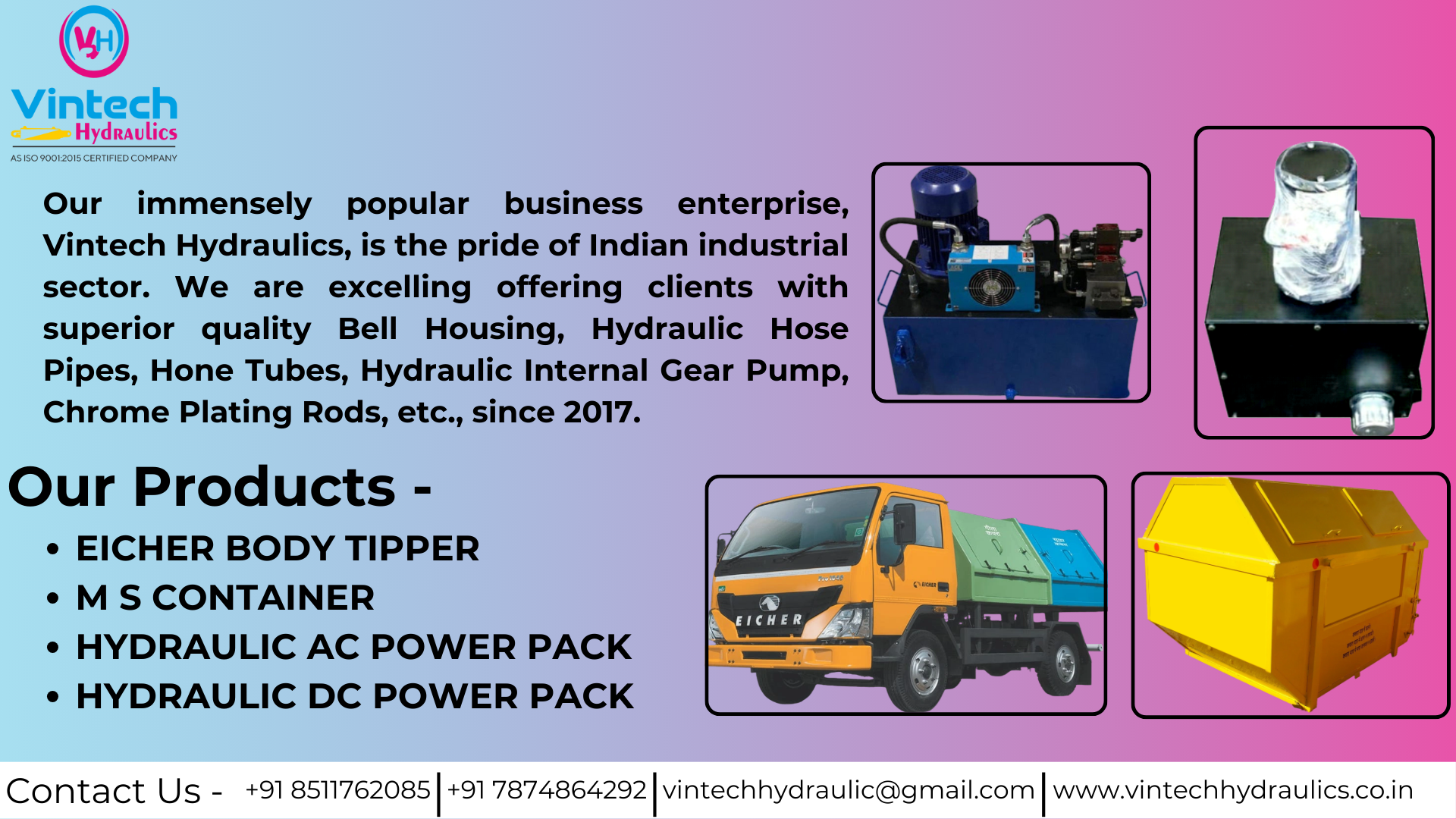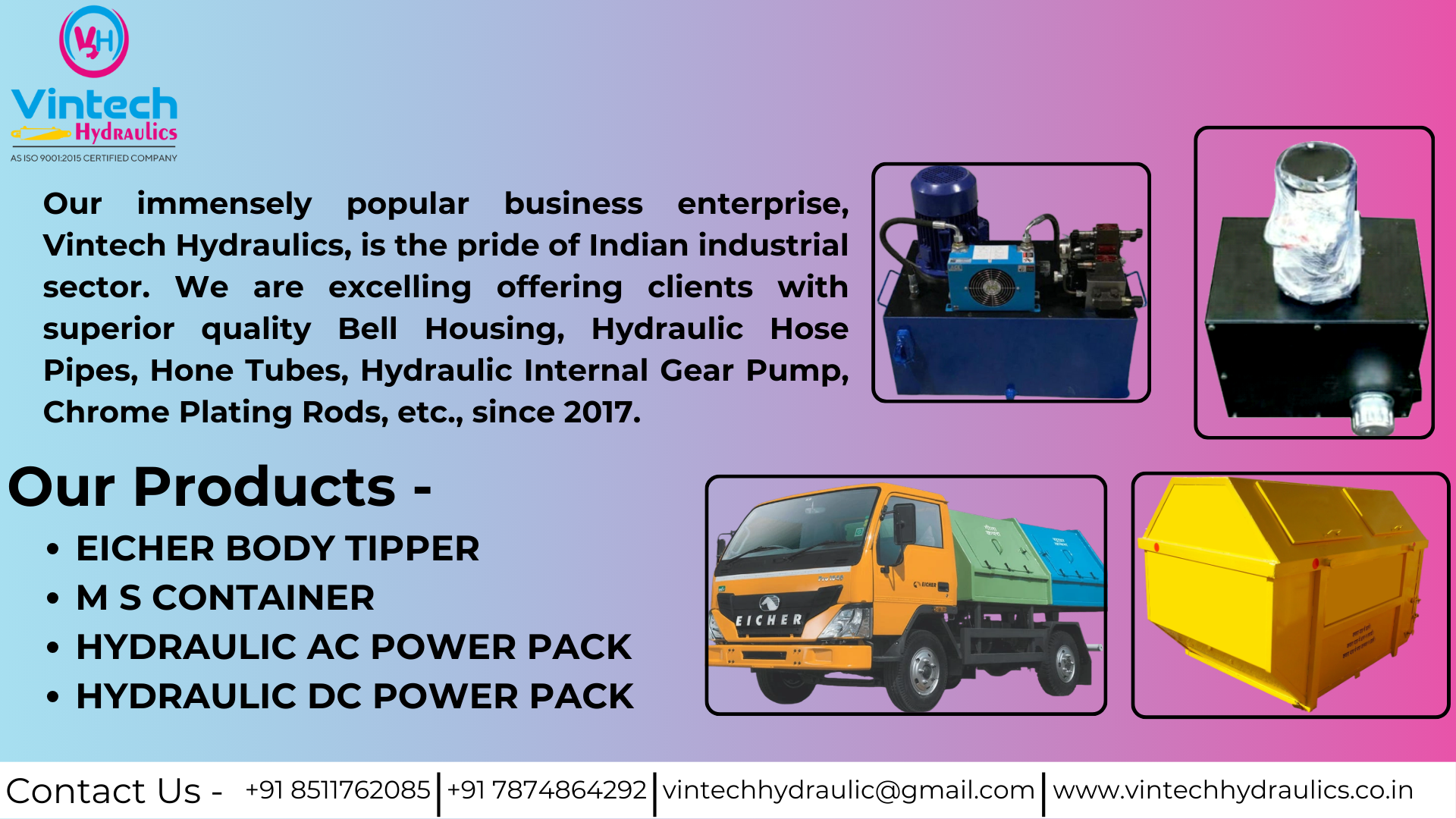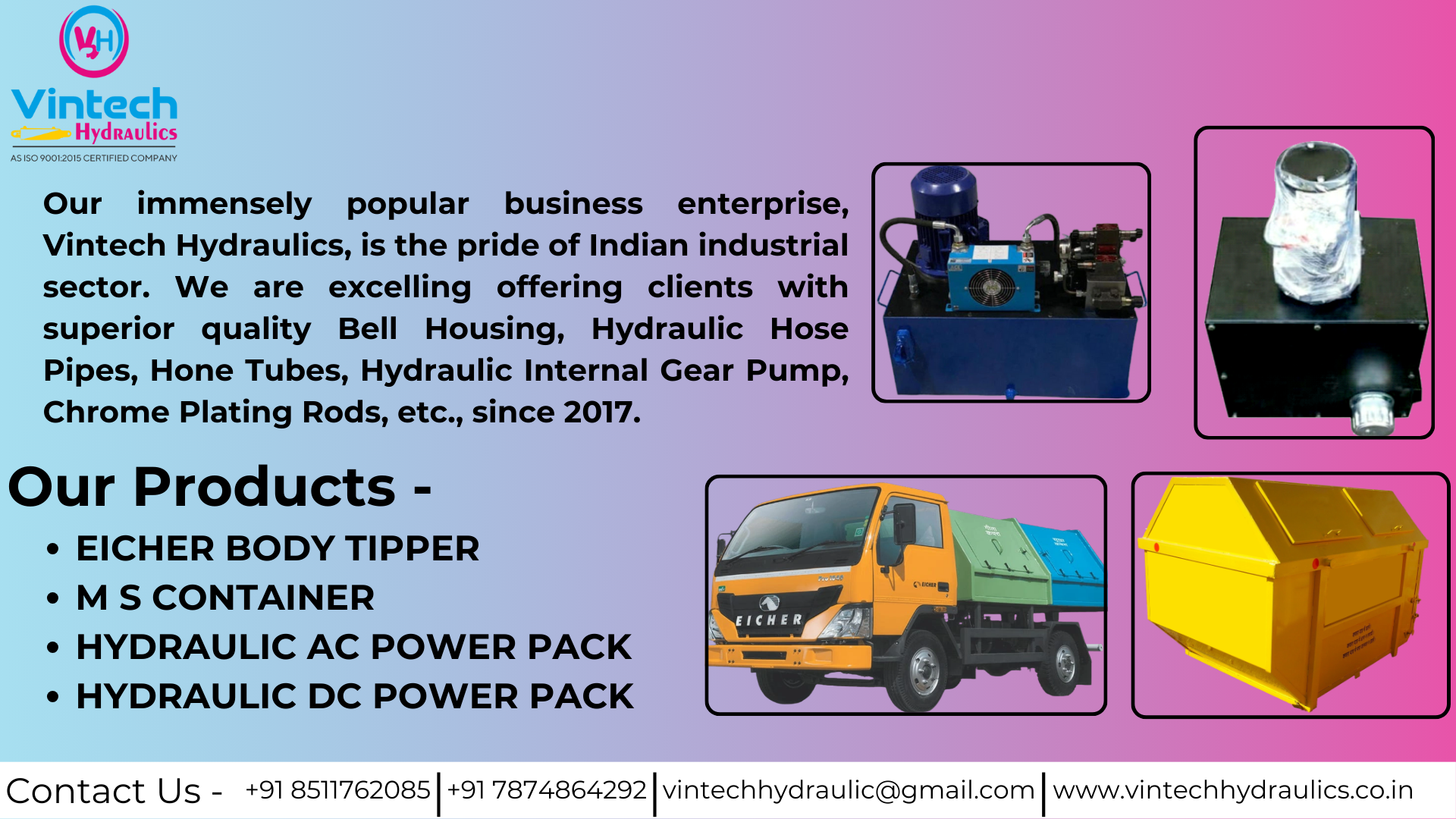
Hydraulic Press Cylinders
Hydraulic Press Cylinders
What is a Hydraulic Press Cylinder?
A hydraulic press cylinder is a high-force actuator that converts fluid pressure into linear motion to exert a compressive force. It is the core component of any hydraulic press, providing the mechanical power required to press, mold, stamp, or compact materials.
How It's Made – Manufacturing & Components
Main Components:
| Part | Description |
|---|---|
| Barrel | Houses the piston; precisely bored and honed for smooth travel. |
| Piston | Separates the oil chambers and transfers pressure force. |
| Piston Rod | |
| End Caps | Seal the ends of the barrel; may include ports. |
| Seals & Gaskets | Prevent leakage and contamination. |
| Mountings | Flanges, clevises, trunnions – for installation. |
Manufacturing Process:
-
Design & Load Calculation
-
Based on tonnage required (e.g., 10T, 100T, 1000T)
-
-
Material Selection
-
Machining
-
Boring of cylinder, chrome plating of piston rod, threading, and grinding
-
-
Assembly
-
Precision assembly of piston, seals, and rod
-
-
Welding & Mounting Installation
-
End caps and flanges are welded/bolted
-
-
Testing
Uses of Hydraulic Press Cylinders
| Industry | Applications |
|---|---|
| Automobile | |
| Sheet Metal Industry | Deep drawing, forming, punching |
| Plastic & Rubber | Mold pressing, compression molding |
| Construction | Brick/paver block compaction |
| Defense & Aerospace | Armor plate pressing, forming critical parts |
| Agriculture | Baling, compacting biomass |
| Recycling Units | Scrap metal and plastic compression |
Importance
-
Backbone of hydraulic presses across all industries
-
Delivers controlled high force in compact form
-
Allows uniform pressing and forming of materials
Advantages
| Feature | Benefit |
|---|---|
| High Force Output | Tonnage can reach thousands of tons |
| Energy Efficiency | Only consumes power during pressing |
| Repeatability | Maintains consistent stroke force |
| Compact & Powerful | Small form factor for high force |
| Cleaner than Mechanical | No mechanical gears or flywheels |
| Precision Control | Servo or proportional valves for accuracy |
Significance in Industry
-
Enables mass production with accuracy
-
Essential in metal forming, mold shaping, and waste management
-
Enhances quality, safety, and speed of industrial operations
-
Key to automation and hydraulic-based systems
Qualities of a Good Hydraulic Press Cylinder
| Quality | Description |
|---|---|
| High Pressure Rating | |
| Corrosion Resistance | Chrome-plated piston rod |
| Smooth Motion | Low-friction seals and fine bore finish |
| Heavy-Duty Design | Welded/bolted end caps and thick barrel |
| Custom Stroke Length | Adaptable to various machines |
| Versatile Mountings | Base/fixed/side mounting options |
FAQs
Q1: What pressure do hydraulic press cylinders operate at?
A: Most work between 150 to 350 bar. Heavy-duty models go up to 700+ bar.
Q2: Can they be repaired?
A: Yes. Cylinders can be re-sealed, re-honed, or rods replaced.
Q3: What kind of oil is used?
A: Hydraulic oil (ISO VG-32/46) depending on temperature and application.
Q4: Are they customizable?
A: Yes. Stroke length, bore, mountings, and sensors can be customized.
Q5: How long do they last?
A: With proper maintenance, up to 10 years or more, depending on usage.
Where It’s Used
-
Hydraulic presses
-
Recycling compactors
-
Forging presses
-
Hydraulic jacks and balers
-
Tile press and paver machines
-
Material handling presses
Conclusion
The Hydraulic Press Cylinder is a powerhouse component that empowers industries with high-force capabilities in a controlled, repeatable, and compact design. From pressing car parts to compacting waste, it serves a vital role in industrial progress, providing strength, efficiency, and reliability. Customizable and robust, it remains indispensable in any manufacturing or pressing operation.
